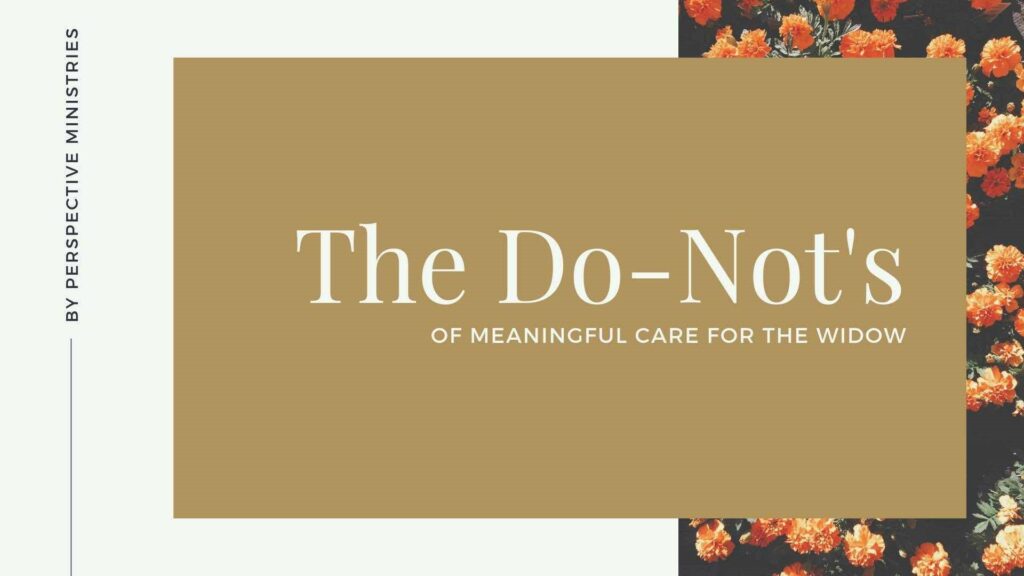Job is a familiar book of a man who lost everything that was precious to him, his family, his possessions, and even his own health. Many people came to comfort him, but no one understood what he was really going through. His comment during his peak grief season was, “Miserable comforters are you all!” While your widowed friend may not experience the depth of suffering that Job faced, she may identify with several aspects of his pain, feeling as though she is the modern day Jobette. Your part in her story is crucial. She needs friends and family to offer their support and presence, not opinions and misinterpretation of God’s work in her life. Let’s learn from Job’s friends to avoid their mistakes. Let’s comfort her in ways that deeply bless her, knowing that one day she may turn around and comfort as she has been comforted (1 Corinthians 1:3-5).
How to be Jobette’s Friend
How to serve the widow in a way that will best serve her and her children:
- Do not compare your experience with death and grief with hers. Do not say that you understand what she is going through. Her story is her own. While you may have had an experience with death, she really needs to know that you do not know exactly what she is feeling at this time.
- Do not evaluate her grieving process during the first few years. Many well-meaning friends and family will issue a report card assessing her progress–she is grieving too much or too little. Grieving takes time no matter how hard one tries to speed up the process. She does not want to be graded and watched as if she were living in a fish bowl.
- Do not expect her to say thank you. She is appreciative but overwhelmed. Not only is it difficult to remember to express gratitude, but she may not have time with all that she is now dealing with. She may also feel uncomfortable being on the receiving end of life.
- Do not assume she is prideful because she does not ask for help. Often, she doesn’t think to ask for help, doesn’t know who to ask for help, or feels she has asked for help too many times.
- Do not get offended if she forgets an important celebration in your life. Grief is hard work and consumes her energy. She will return again, but it will take time.
- Do not consider her personality change as permanent. She is not able to focus on your own problems now. She may appear to be self-focused, but this will not be forever. While you love her unconditionally, you are modeling the comfort she will offer to others one day.
- Do not make empty commitments. If you say you will cut her grass, make sure to follow through.






